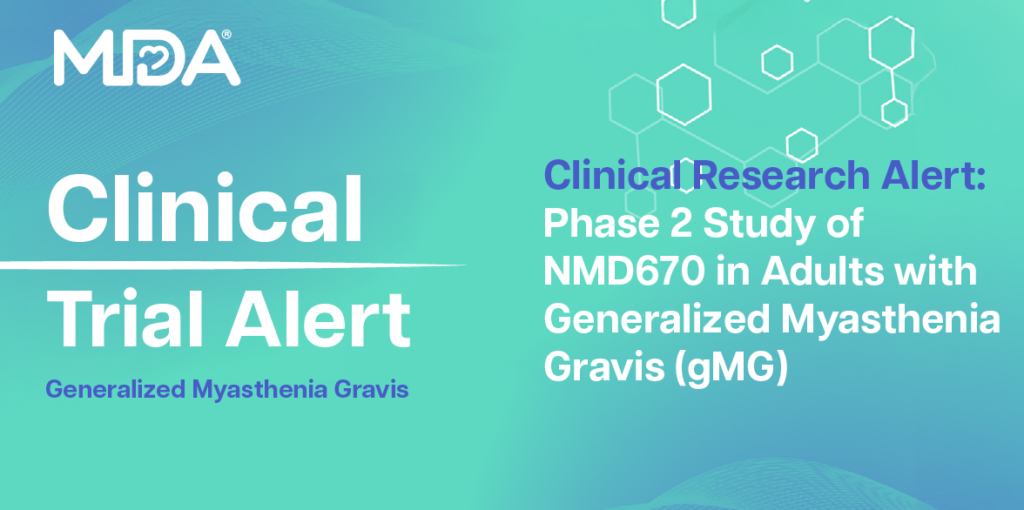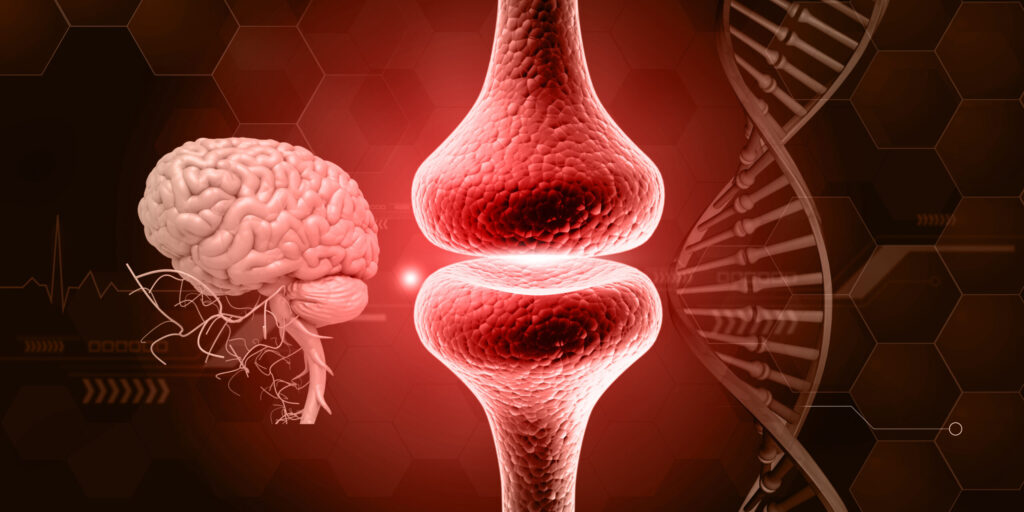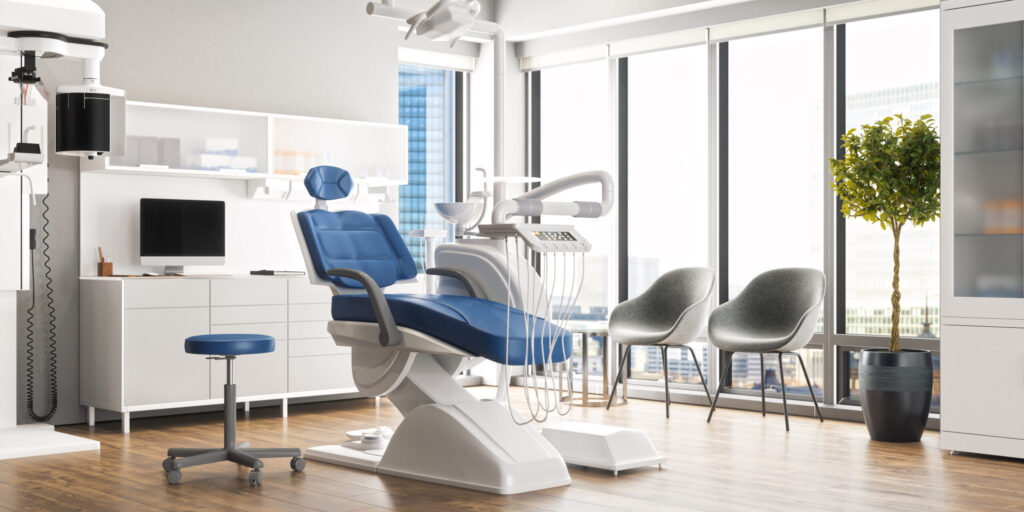
How to Find an Accessible Dentist
By Claire Sykes | Wednesday, April 26, 2023
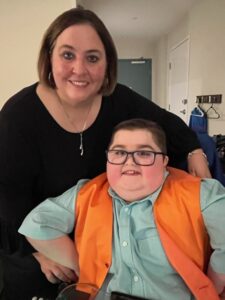
Christy Hickman (left) and Peyton (right) have experienced many of the common challenge of finding accessible dental care.
From small exam rooms to uncomfortable dental chairs, many dentists’ offices are not accessible if you use a wheelchair or have other disabilities. This is what Christy Hickman learned when her son started using a power wheelchair.
Every day, 14-year-old Peyton and his mom brush and floss their teeth together. They both know the importance of good oral hygiene, which includes regular visits to the dentist. If only she could find one for her son.
Your right to accessible care
The Americans with Disabilities Act (ADA) prohibits discrimination against a person with a disability and requires private dental practices to make reasonable accommodations for accessibility. They do not have to make modifications that would cause an “undue burden” or provide services to a person with a disability that they normally would not provide.
According to the American Dental Association’s code of ethics, if a dentist can’t provide appropriate care to a patient with a disability, they must refer them to someone who can. But even the association admits that these dentists can be hard to track down.
Peyton, who lives with Duchenne muscular dystrophy (DMD) in Knoxville, Tennessee, has been using a power wheelchair since 2018. He could still walk a few steps from his wheelchair to the dental chair until 2021. Then, his dentist didn’t feel he could treat Peyton safely because Peyton’s wheelchair doesn’t recline and he doesn’t have a lift to transfer him. So, he referred Christy to a special-needs dentist in Knoxville. However, Peyton had to wait seven months for an appointment. Long wait times for appointments are a common experience for those seeking specialized dental care.
Barriers to dental care
Waiting isn’t Christy’s only worry. “This new dentist has so many patients, they’re very rushed, and they can’t promise that the bigger room that fits his wheelchair will be available,” she says. “So, Peyton’s first check-up was done in the hall, using a portable X-ray machine.” The second time, they used a Hoyer lift to transfer Peyton into the dental chair, which also was not ideal. “Having fallen before and with five compression fractures in his back, he was so scared he’d slip out of the dental chair,” Christy says.
Over the months, Christy got several more dentists’ names, as possibilities, from a local Facebook group for parents of special-needs children and a Medicaid waiver program called the Katie Beckett Waiver. Most of them were not accepting new patients, but one, an hour away, was willing to see Peyton. Availability and distance are two more common dental-care barriers.
Christy now faces a tricky choice for Peyton, who is due for his next dental visit in June. “He gets anxious when we drive long distances,” she says. “But I’m not satisfied with where we’re at. Do we cut ties with the local dentist and go to the out-of-town one? And what if he doesn’t work out for us?”
Oral hygiene and health
Meanwhile, Peyton stays on top of cleaning his teeth. Roopali Kulkarni, DMD, MPH, Assistant Professor of Oral Medicine at Penn Dental Medicine, recommends brushing twice a day with fluoride toothpaste and flossing once a day. A toothbrush with a bigger handle or a tennis ball attached to it can be easier to grip. So can an electric toothbrush, like Peyton uses, along with a water flosser.

Roopali Kulkarni, DMD, MPH, says good oral health promotes overall health.
Dr. Kulkarni points out that even if you can hold the toothbrush, arm fatigue can make it hard to develop a good oral health routine. Because Peyton’s arm muscles are weakening, he generally starts brushing, then his mother takes over when his arm gets tired.
“The mouth is a mirror to the body,” Dr. Kulkarni says. “Not only does proper oral hygiene help prevent tooth decay, oral infections, and gum diseases, but it also promotes overall health.”
Mouth bacteria can cause inflammation and infection that could lead to bone loss, and it is connected to heart and lung diseases. Regularly scheduled preventive dental visits can catch minor problems so they can be dealt with before they become major.
There are also some specific dental concerns for people with neuromuscular diseases. “Neuromuscular diseases also can affect the ability of muscles in the face and mouth to function, and the tongue can be larger,” Dr. Kulkarni says. “This can impact chewing, swallowing, breathing, and all the things the mouth can do.”
Dentists who work with people with neuromuscular diseases should be aware of these issues, so they can use props or blocks to keep the mouth open and provide frequent breaks or multiple, shorter appointments in installments if needed.
Tips for finding a dentist
Friends and family often are the best sources for finding good dentists. Ask for recommendations, then call the dentists to find out how they can accommodate you.
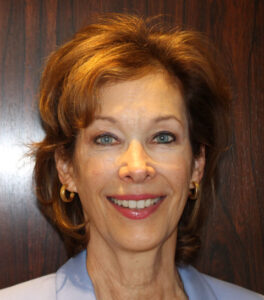
Jane Grover, DDS, MPH, says dentists are getting more education in treating people with disabilities.
If you need a dentist with specific skills or accessible office features, ask your regular dentist and primary care physician for referrals. For a child with a neuromuscular disease, “your pediatric dentist is a good first step. They’re fonts of knowledge in the community,” says Jane Grover, DDS, MPH, Senior Director of the Council on Advocacy for Access and Prevention, with the American Dental Association. She also suggests asking oral surgeons and dentists in community health centers for referrals.
You could also contact the American Dental Association, the Special Care Dentistry Association, your state dental and primary care associations, and dental schools. And don’t forget disability-related social media sites and online forums.
Improving access
The American Dental Association is working to ensure that all patients have a dental home. The association’s continuing education for dentists has ramped up to more than 30 courses, says Dr. Grover. “Our Community Dental Health Coordinator program is now offered nationwide, teaching dentists who work in community health how to connect patients to care that they maybe didn’t know existed. Dentists are getting more education in treating people with neuromuscular diseases and other disabilities, and it’s going to reflect in their practices,” she says.
More dentists are training staff on how to interact with and assist patients with disabilities so they can have positive experiences. The goal is for all dental clinics to welcome them and be properly equipped, assuring their patients they’re receiving the best possible care.
Next Steps and Useful Resources
- Watch MDA’s webinar on Dental Health and Neuromuscular Disease.
- Browse MDA’s printable educational materials on health and daily living topics.
- Stay up-to-date on Quest content! Subscribe to Quest Magazine and Newsletter.
Disclaimer: No content on this site should ever be used as a substitute for direct medical advice from your doctor or other qualified clinician.


